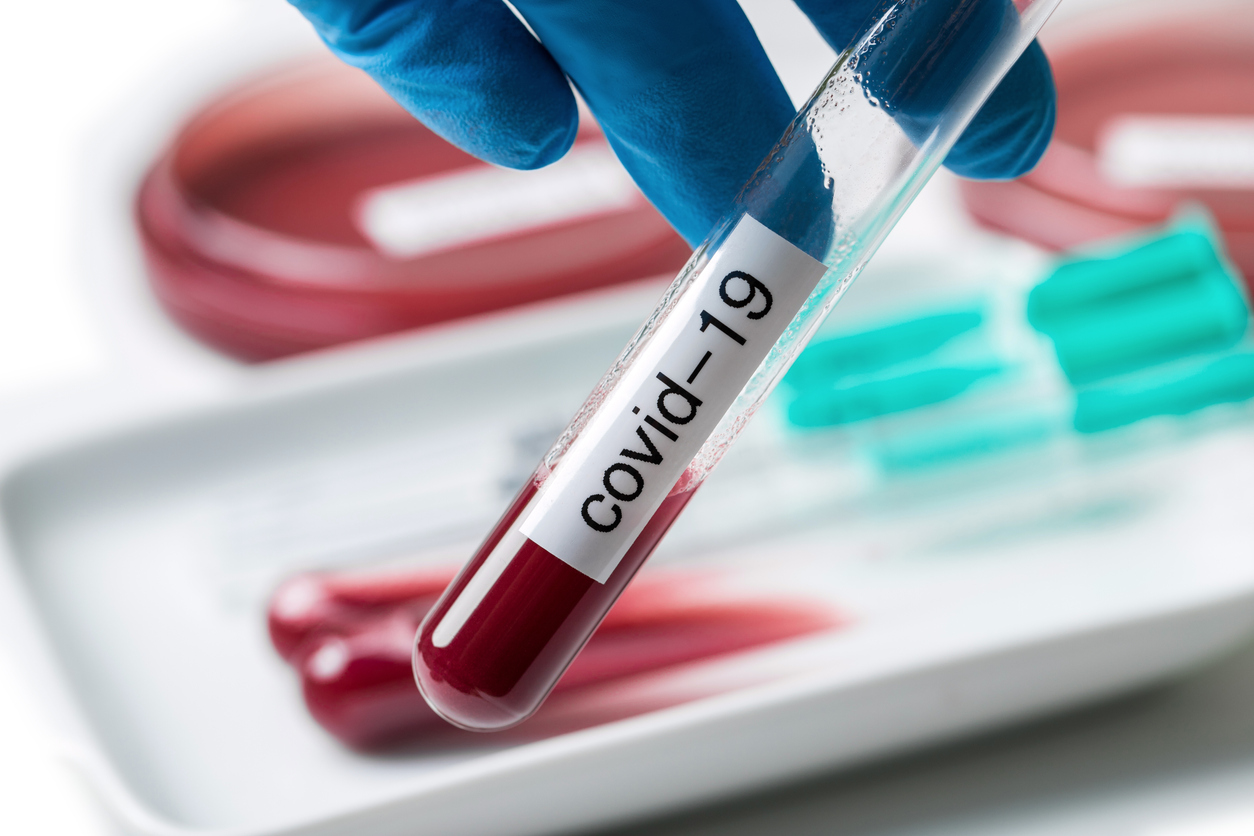Tuesday, 05 May 2020
A new study will examine why some people who contract COVID-19 have symptoms and others don’t, and will question why, out of those who become symptomatic, not all become seriously ill.
COVID-19 is a global healthcare crisis and while there are a large number of deaths recorded, it is clear that not every person who contracts COVID-19 reacts in the same way.
New research, led by experts from the University of Nottingham and Nottingham University Hospitals, will look to answer a number of important questions around how COVID-19 affects different people.
This information could be used to help to prevent infection among key workers in the NHS.
Healthcare workers are at higher risk of being infected by COVID-19 than the general population because of their contact with patients and the general public.
“We want to know how many of our doctors, nurses, and healthcare professionals have already had the virus,” says Mr Ben Ollivere, Clinical Associate Professor and Honorary Consultant Trauma Surgeon from the School of Medicine at the University, and one of the lead researchers on the study.
“We also want to know if this is more common depending on any physical characteristics, such as age, ethnicity, presence of conditions like diabetes or hypertension, and also based on any substances in their blood (number of immune cells, levels of inflammation-related substances).”
The team will be collecting blood from healthcare workers during the pandemic. They will extract serum from samples taken at regular intervals, (every week), to test for antibodies against the virus that causes COVID-19 and measure other substances in the blood.
 COVID-19 testing
COVID-19 testing
“This will help us understand the risk of infection among front line healthcare workers,” adds Mr Ollivere.
The team will also undertake a genotype to establish if there are any genetic characteristics that contribute to susceptibility for the disease.
So far the team have collected samples from 142 members of staff from Nottingham University Hospitals.
We will use the bloods taken the first time to measure certain genes that we think may relate to immune response to viruses. We will use the weekly draws to measure serum antibodies and markers of inflammation against the virus that causes COVID-19. We will also be asking people if they have had to self-isolate, if they have had COVID-19 symptoms, if they have had a test for the coronavirus and if they tested positive.”
The data collected will be fully anonymised so the team will be able to report how many healthcare workers have had the disease and whether this relates for example to their ethnicity or age or other clinical characteristics.
The researchers will then be able to establish which cellular pathways are important in developing treatments.
Dr Valdes says: “This is important in order for us to understand what treatments may work, and why patients become sick we need to study those who have been exposed to COVID-19 and those who have not.”
The research has been informed by experts from the NIHR Nottingham Biomedical Research Centre and research undertaken at the University of Nottingham Ningbo China Campus.
Deputy Head of the Nottingham Biomedical Research Centre, Professor Guruprasad Aithal, said: "Thanks to our liaisons with the Ningbo campus of the University of Nottingham and our mechanistic work within the NIHR BRC we have been able to generate strong hypotheses on the molecules that we should test.”
Other researchers on the project include Professor Guruprasad Aithal, Professor of Hepatology, NIHR Nottingham Biomedical Research Centre and Jayne Newham, Nottingham Tissue Bank Manager.
Story credits
More information is available from Dr Benjamin Ollivere in the School of Medicine at the University of Nottingham at Benjamin.Ollivere@nottingham.ac.uk
Notes to editors:
About the University of Nottingham
Ranked 97 in the world and 17th in the UK by the QS World University Rankings, the University of Nottingham is a founding member of Russell Group of research-intensive universities. Studying at the University of Nottingham is a life-changing experience, and we pride ourselves on unlocking the potential of our students. We have a pioneering spirit, expressed in the vision of our founder Sir Jesse Boot, which has seen us lead the way in establishing campuses in China and Malaysia - part of a globally connected network of education, research and industrial engagement.
Nottingham was crowned Sports University of the Year by The Times and Sunday Times Good University Guide 2024 – the third time it has been given the honour since 2018 – and by the Daily Mail University Guide 2024.
The university is among the best universities in the UK for the strength of our research, positioned seventh for research power in the UK according to REF 2021. The birthplace of discoveries such as MRI and ibuprofen, our innovations transform lives and tackle global problems such as sustainable food supplies, ending modern slavery, developing greener transport, and reducing reliance on fossil fuels.
The university is a major employer and industry partner - locally and globally - and our graduates are the third most targeted by the UK's top employers, according to The Graduate Market in 2024 report by High Fliers Research.
We lead the Universities for Nottingham initiative, in partnership with Nottingham Trent University, a pioneering collaboration between the city’s two world-class institutions to improve levels of prosperity, opportunity, sustainability, health and wellbeing for residents in the city and region we are proud to call home.
More news…